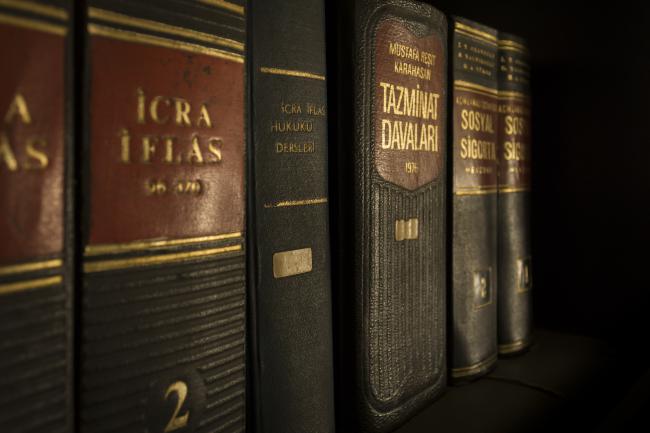Parents and Guardians
Any parent or guardian who pays or receives child support, whether or not he/she receives public assistance, can benefit from the information on this web site.
Our county has four different offices to better serve our community. We provide a variety of child support services to the person paying support (PPS) and the person receiving support (PRS); helping parents fulfill their responsibilities to their child(ren).
Our office provides the following services:
- Establishing parentage (via a court order) (fatherhood)
- Locating parents (Not as a standalone service)
-
Requesting child support orders from the court
- Requesting medical support orders from the court
-
Enforcing Child Support and in certain circumstances Spousal Support Orders
- Modifying child support orders
- Collecting and disbursing child support
Services Not Provided:
- Handle custody or visitation matters
- Handle divorces
- Obtain or enforce restraining orders
- Establish spousal support orders
Legal Relationship With Our Office
The Riverside County Department of Child Support Services, does not represent either the parent or the child(ren), and therefore our attorneys do not represent the parties involved. Please take note, that because you’re not a legal client, the information you provide is not confidential under the client/attorney privilege. The information in your case may be discussed or disclosed to other public agencies that are authorized by law to receive such information, the other parent’s employer, and to the other parent or his/her attorney to the extent required by law.
By law, our office has the final decision on what child support enforcement actions will be taken, even if the person receiving suppor disagrees. Parents have the right to seek legal advice from a private attorney or legal aid group at their own expense at any time.
Our county also offers Family Law Facilitators through the Family Law Assistance Center which provides you with information and help in preparing forms.

Legal Assistance Options
Some available legal assistance options are the Family Law Assistance Centers, private attorneys, and legal clinics can provide legal assistance in child support cases.
Family Law Facilitators
The Family Law Assistance Center offers Family Law Facilitators to help parents and any other parties who have questions about family law issues including child support, spousal support, health insurance, and the availability of community resources to help families. A Family Law Facilitator can give you general information and help you prepare your own forms. Family Law Facilitator services are provided free of charge and are not connected with the Department of Child Support Services.
The Family Law Facilitator is not your lawyer, cannot go to court with you, and is not responsible for the outcome of your case. He/she is a neutral person who does not represent any party; therefore, he/she may provide information and services to the other party in your case. Since there is no attorney-client relationship between you and the Family Law Facilitator, communications are not confidential. A private Attorney can provide personalized advice or strategy, confidential conversation, or attorney representation in court.
Click here for more information about the Family Law Assistance Center including services offered, locations, phone numbers, and business hours.
Private Attorneys
A private attorney can provide personalized services to parents. They can give as much time to a case as is necessary to do an effective job. The biggest drawback is expense. A private attorney will charge for the time required for personal interviews, telephone calls, legal research, court appearances, and the preparation of pleadings. If the person receiving support cannot afford an attorney, the person paying support may be ordered to pay reasonable attorney fees and court costs. However, it is up to the judge to decide how much, if any, of the legal fees the person paying support may be ordered to pay.
If, at any time, you retain a private attorney to enforce or modify the child support obligation, you must notify this office immediately and serve us a copy of any action to modify, and also within 15 calendar days of its issuance, a copy of the new order. We will not duplicate efforts or enforcement actions on your behalf. You must notify us in writing of your intent to file an enforcement action 30 days prior to doing so and we must either notify you in writing in 30 days after receiving your notice of our consent or objection to that action. We will not object unless we are engaging in an on-going enforcement action or investigation. You must notify us within 10 days of any change in custody, whether permanent or temporary.
Legal Clinics
Services offered by a legal clinic may cost less than those provided by a private attorney. Legal clinics may charge for services based on the actual time spent on a case or on a contingency fee basis.
For more information about these services, look in the telephone book yellow pages under legal clinics or Legal Services, Attorneys (specializing in divorces, adoptions and family law) or under Attorney Referral Services.

Person Receiving Support
Due to the volume of cases, it is important that you, as the person receiving support seeking our services, cooperate with us as a partner in working your case. It is the responsibility of the person receiving support to notify this office, in writing, if the minor child becomes emancipated or marries, or if the other parent or another person has or obtains custody of the child. Address changes should be reported promptly.
You will be asked to fill out certain documents. Many of these must be signed under penalty of perjury. You must answer the questions on the forms truthfully. The decision to take legal action is based on the information that you provide. You may be prosecuted for perjury if you fill out these documents falsely.
This office reserves the right to take any appropriate legal action against a party who does not pay child support. Such actions may include contempt orders or arrest.
Whether or not the family is receiving public assistance, our office has the legal responsibility and discretion to determine what court or enforcement techniques are to be used, not the person receiving support. Our office needs the cooperation of the person receiving support in providing complete, accurate, and up-to-date information in order to do the best job. Those cases with complete information will have a higher chance of success in collecting support.
Failure of the person receiving support not receiving public assistance to cooperate in these actions and to sign all necessary legal documents may result in closure of the case.

